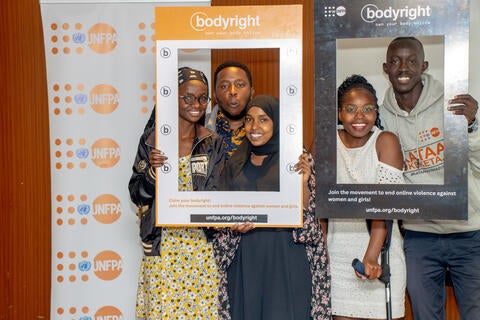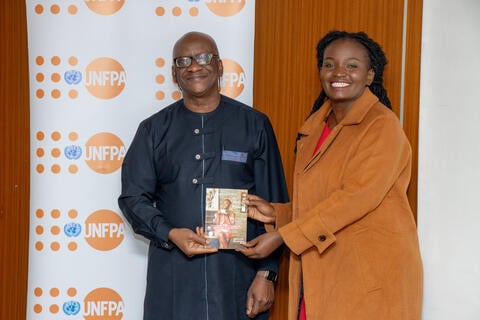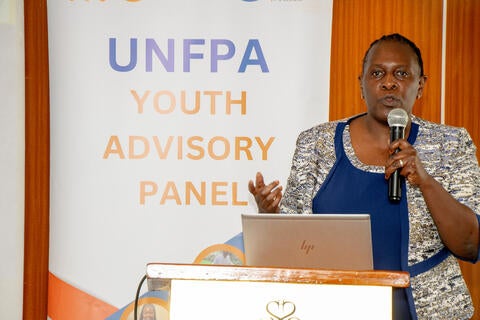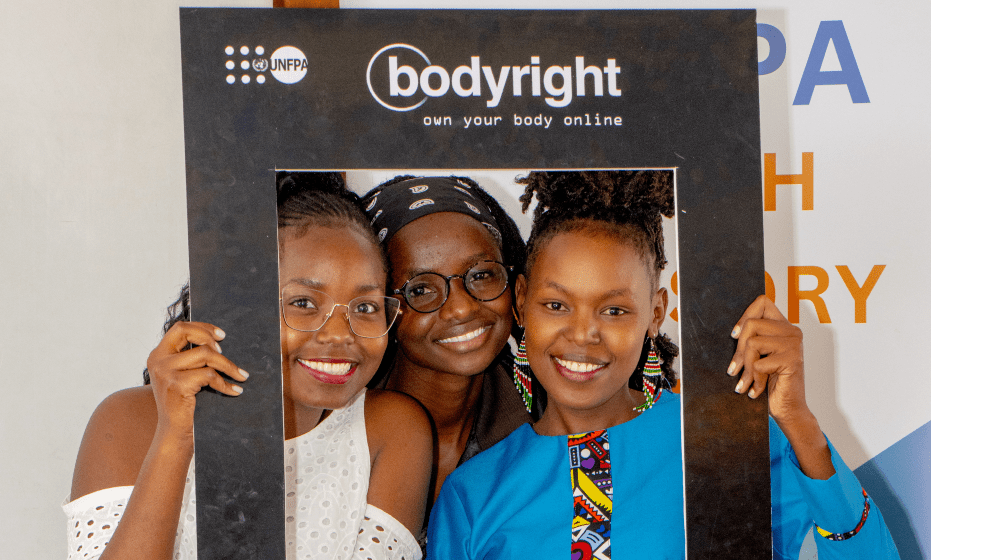In today's digital age, the issue of violence against women has taken on a new form – digital violence. 85% of women globally have experienced or witnessed digital violence against other women. This includes non-consensual sharing of intimate images, cyberbullying, deep fakes, doxxing, and cyber flashing. Furthermore, 57% of women have had their videos or images online abused or misused, and 96% of deep fake videos are pornography, all of which involve women.
To address this growing concern, UNFPA launched the bodyright campaign, which aims to create awareness about digital violence and push lawmakers, digital companies, and social media platforms to take abusive use of human bodies as seriously as copyright infringements. The campaign seeks to empower women and young people to take ownership of their bodies online and make the digital world a safer space for everyone.

and make the digital world a safer space for everyone.
At a recent session on technology-facilitated gender-based violence organized by UNFPA and the UNFPA Youth Advisory Panel in Kenya, young men and women gathered to learn more about UNFPA's bodyright campaign and how they can join the fight against digital violence. The group made up of sexual and reproductive health advocates, gender activists, social media influencers, and GBV survivors, has taken up the cause of ending online violence, and is leveraging various social media platforms to raise awareness on the issue.
“Some of us have experienced cyber harassment in during our online activism, especially when speaking about issues of gender-based violence,” says Valerie Kulola, a 19-year-old gender studies student at Egerton University. “You will be attacked by online mobs whose main aim is to intimidate and silence you.”
“If we can use our platforms to provide women and girls with the information they need to protect themselves and report online abuse, we are one step closer to eliminating this kind of violence,” added 24-year-old sexual and reproductive health advocate Tonny Olela.

Oyeyipo with digital violence survivor
Queentah Wambua
Addressing participants at the bodyright campaign workshop, UNFPA Deputy Representative Dr. Abiodun Oyeyipo emphasized the importance of young people in the fight against all forms of GBV, both online and offline, and assured them of UNFPA's commitment to working with them.
Jackline Njagi, Assistant Director of Public Prosecutions, Head, Sexual and Gender-Based Violence Division, Office of the Director of Public Prosecutions, took participants through a deep dive on GBV cybercrimes and relevant legislation in Kenya. While the country’s computer misuse and cybercrimes act 2018 addresses technology-facilitated gender-based violence including sharing of intimate images, cyberbullying, and online harassment, inadequate implementation of the law remains a challenge for survivors seeking justice. Ms. Njagi also cited a lack of reporting by victims of online gender-based violence which has led to lower rates of prosecution and convictions for such crimes. “Our law enforcement officers also need to be trained so they can adequately respond and support those who report such crimes,” said Ms. Njagi.
As indicated by data from the most recent population and housing census carried out in 2019, internet use among young people in Kenya has been on the rise. 35.5% of young people aged 15-24 in Kenya were using the Internet, an increase from 27.1% in 2009. This population will n their lifetime be faced with increasing online safety concerns, including digital violence, which is overwhelmingly aimed at women, girls, and society's most marginalized and vulnerable.
“It is our collective responsibility to safeguard our safety and that of others online,” said Stephen Gitau, Assistant Director, the Directorate of Children Services. “Every platform online has a reporting mechanism where you can flag offensive content such as child porn, cyber harassment, and non-consensual sharing of intimate images. Always take the time to report.”

Prosecutions addresses participants at the
bodyright workshop.
“We are excited to take this campaign forward in order to raise awareness on the need to end tech-facilitated gender-based violence among young people online,” said UNFPA Youth Advisory Panel Chairperson Leshan Kereto.


